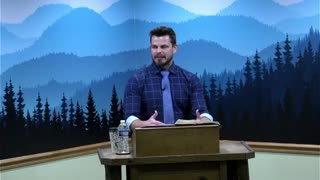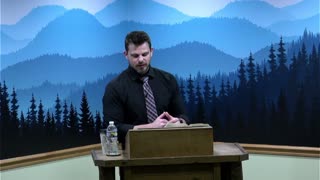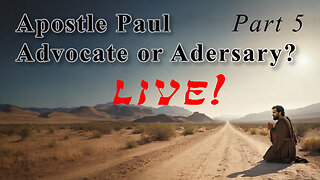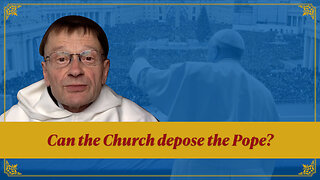Episode 2228: The Integrated Catholic Faith - Nightly Episode
“O my God, at the end of this day I thank You most heartily for all the graces I have received from You. I am sorry that I have not made better use of them. I am sorry for all the sins I have committed against You. Forgive me, O my God, and graciously protect me this night. Blessed Virgin Mary, my dear heavenly mother, take me under your protection. St. Joseph, my dear Guardian Angel, and all you saints in heaven, pray for me. Sweet Jesus, have pity on all poor sinners, and save them from hell. Have mercy on the suffering souls in purgatory. Amen”
The Integrated Catholic Faith
In tonight’s episode, we’ll explore the themes of divine mercy, the coherence of the Catholic faith, and the importance of prioritizing time with God over worldly activities. We will reflect on insights from St. Joseph the Hymnographer, a compelling defense of Catholicism, and a scriptural passage from Psalm 50. Join us as we unpack these themes from a traditional Catholic perspective.
"I know not how to praise Thy mercy and Thy love; But deign my soul from earth to raise And learn from Thee above." St. Joseph the Hymnographer
St. Joseph the Hymnographer, celebrated for his liturgical hymns, captures a profound sense of humility and longing in this quote. From a traditional Catholic perspective, this expresses the soul's deep yearning for God's mercy and love, recognizing human inadequacy in fully understanding or praising God's infinite goodness.
The plea to "raise my soul from earth" reflects the Catholic aspiration for transcendence and sanctification. It signifies a desire to rise above worldly distractions and to be closer to God, to learn from Him in a heavenly sense. This aligns with the Catholic practice of seeking divine wisdom through prayer, contemplation, and the sacraments. St. Joseph's humility is a model for all believers, reminding us that true praise and understanding of God come not from our efforts alone but from His grace elevating our souls.
"Still, I maintain that our best defense of Catholicism is not ad hoc or piecemeal. The Catholic Church certainly offers the most persuasive natural arguments and the most consistent biblical arguments. But the attractive power of the Catholic faith is the way it all hangs together: the natural, the biblical, and the theological. It's integrated, just as all that has come from God is recognizable as His own. The Catholic faith is as solid as the Gospel - as solid as the rock Jesus promised would uphold His Church."
This quote emphasizes the coherence and integration of the Catholic faith. From a traditional Catholic viewpoint, the faith is not just a collection of isolated doctrines but a unified whole that encompasses natural law, biblical revelation, and theological truth. This integration makes the Catholic Church uniquely compelling and credible.
The Catholic faith’s strength lies in its consistency and comprehensiveness. Natural law, understood through reason, aligns with biblical teachings and is deepened by theological insights. This harmony reflects the belief that all truth comes from God and thus must be consistent with itself. The Church's teachings, grounded in Scripture and Tradition, provide a solid foundation, much like the rock upon which Jesus promised to build His Church. This integrated approach is a powerful testament to the divine origin and enduring truth of the Catholic faith.
"Let us acknowledge humbly that our natural tendency is to be too attached to our activities, to allow ourselves to be carried away by them till they fill our minds entirely. This won’t change until we acquire the wise habit of abandoning all activities, even the most urgent and important ones, in order to give time freely to God."
This quote highlights the challenge of balancing worldly activities with spiritual priorities. From a traditional Catholic perspective, there is a call to detach from the incessant busyness of life and to make intentional time for God. This detachment is not about neglecting responsibilities but about recognizing that our ultimate purpose and fulfillment come from our relationship with God.
Catholics are encouraged to practice regular prayer, meditation, and participation in the sacraments to nurture this relationship. By prioritizing time with God, we realign our lives according to His will and receive the grace needed to fulfill our duties more effectively. This practice of "abandoning all activities" is a form of spiritual discipline that leads to deeper peace and a more profound sense of God's presence in our daily lives.
"The Mighty One, God the Lord, speaks and summons the earth from the rising of the sun to its setting." Psalm 50:1
Psalm 50:1 affirms God's sovereignty and His continual presence and authority over creation. From a traditional Catholic perspective, this verse underscores the omnipotence of God and His active role in the world. The imagery of God summoning the earth from sunrise to sunset conveys His constant watchfulness and involvement in all aspects of life.
This passage invites believers to recognize God's power and majesty, encouraging a response of reverence and obedience. It also serves as a reminder that God's call extends to all creation, inviting everyone to live in accordance with His divine will. In the context of the previous quotes, it reinforces the importance of aligning our lives with God's purposes and trusting in His overarching plan for the world.
Conclusion:
As we reflect on the wisdom of St. Joseph the Hymnographer, the coherence of Catholic faith, and the call to prioritize our relationship with God, we are reminded of the profound mercy and love of our Creator.
Let us strive to lift our souls towards God, embrace the integrated truth of our faith, and make intentional time for divine communion. Thank you for joining us in this exploration of faith. Until next time, may you find peace in God's presence and strength in His love. God bless. Remember the Poor Souls.
-
 7:00
7:00
CatholicReboot
15 days ago $0.06 earnedEpisode 2232: St Benno of Meissen
162 -
 11:50
11:50
DAILY BIBLE INSPIRATION
16 days ago $0.53 earnedActs - Chapter 7 DAILY BIBLE STUDY {Spoken Word - Text - Red Letter Edition}
5348 -
 53:03
53:03
ArtBaptist1611
17 days ago2 Samuel 9 Mephibosheth | Pastor Jason Robinson, Mountain Baptist Church
27 -
 1:16:17
1:16:17
ArtBaptist1611
17 days ago2 Samuel 8 (David's Victories) | Pastor Jason Robinson
372 -
 8:08
8:08
RaisingMyWildflowers
15 days agoJob 30 Psalm 24 Proverbs 25:24 Luke 12:22-48 Daily Audio HolyBible Scripture Verse Reading
28 -
 1:28:39
1:28:39
God Honest Truth
16 days agoApostle Paul: Advocate or Adversary 05 - God Honest Truth Live Stream 06/14/2024
75 -
 55:39
55:39
Todd Coconato Show
16 days agoComing to the End of Ourselves • Sunday Service
724 -
 7:34
7:34
RaisingMyWildflowers
15 days agoJob 24 Psalm 22:1-5 Proverbs 21:9 21:19 Luke 7:18-35 Daily Audio Bible Reading
461 -
 28:41
28:41
erikallenmedia
17 days agoGuided By Faith | Kevin Lowe | Ep. 269
133 -
 29:41
29:41
TheFatimaCenter
5 days agoCan the Church Depose the Pope? | Fr. Albert Kallio
35